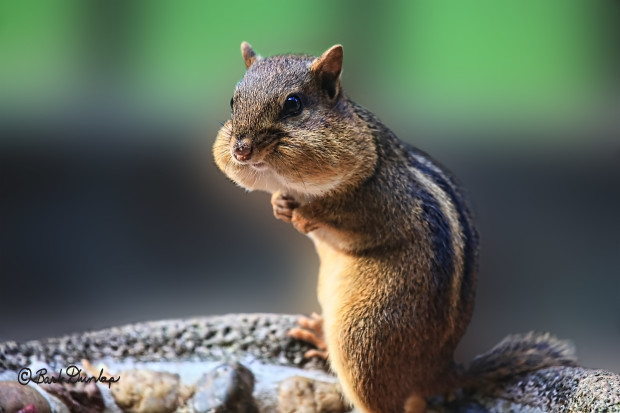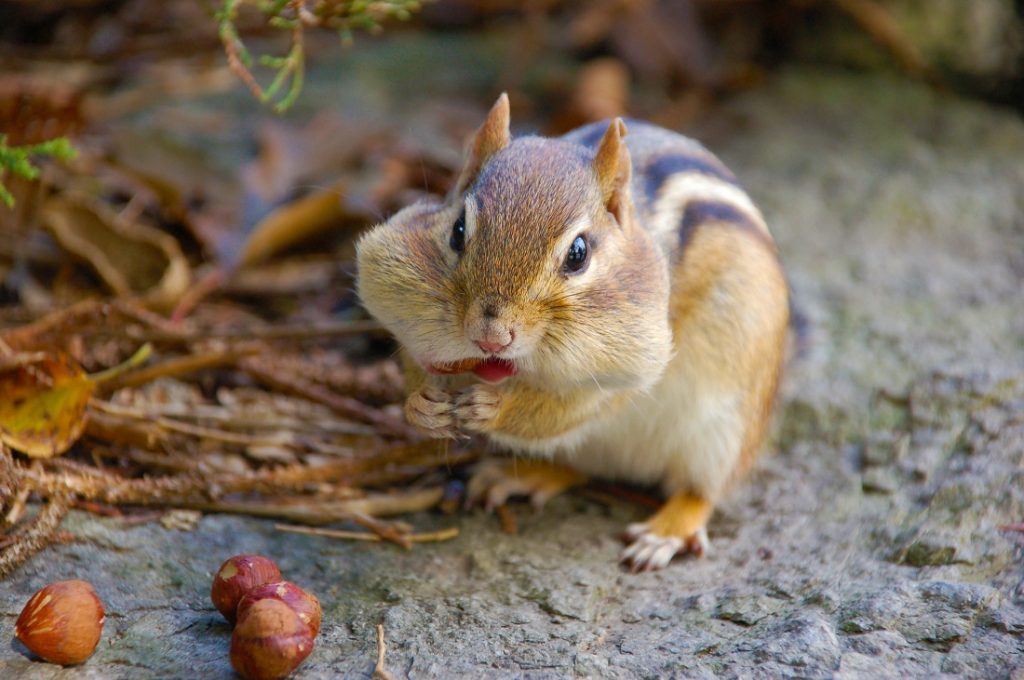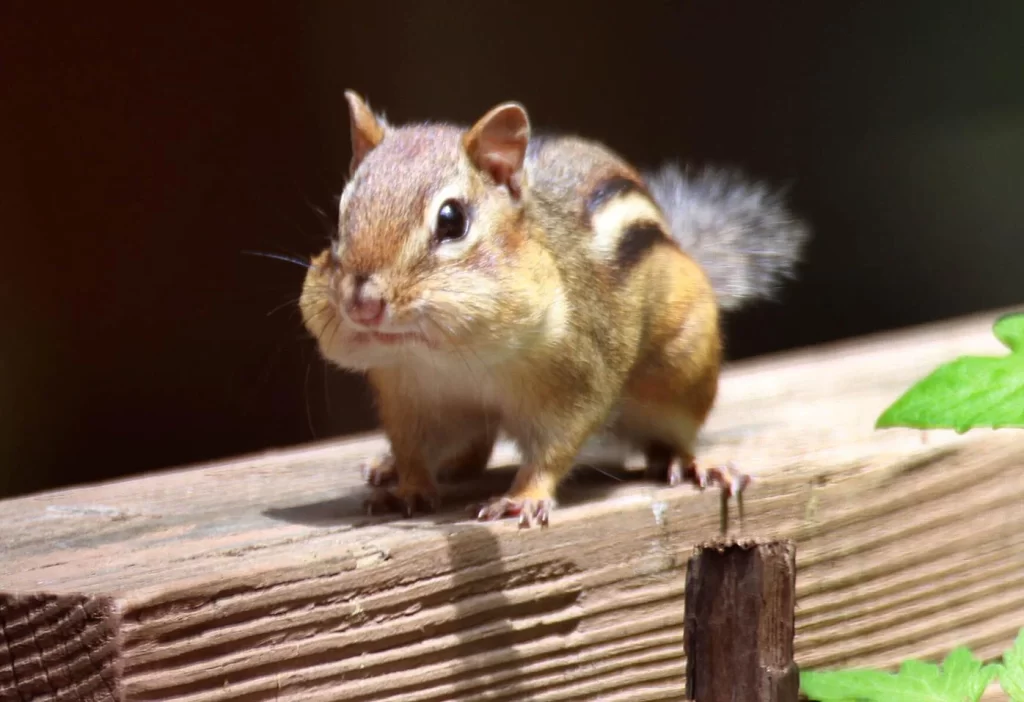Introduction:
Chipmunks are small, adorable creatures that belong to the squirrel family. These furry animals are known for their energetic behavior, agile movements, and adorable looks. In this article, we will take a closer look at the life of a baby chipmunk, from birth to maturity.

Birth of Baby Chipmunks:
Chipmunks typically mate during the spring season, and after a gestation period of about 30 days, the mother gives birth to a litter of 2-8 pups. The newborns are born hairless, blind, and deaf, weighing only a few grams.
Early Development:
For the first two weeks after birth, the baby chipmunks are solely dependent on their mother for survival. During this time, they feed on the mother’s milk and sleep for most of the day. As they grow, they begin to develop fur, and their eyes and ears begin to open. At around three weeks old, the pups start to take their first steps and explore their surroundings.
Diet:
Chipmunks are omnivores and feed on a variety of foods, including nuts, seeds, fruits, berries, insects, and small animals. The mother chipmunk will introduce solid food to her pups at around three weeks old. Initially, the pups will be fed soft foods such as fruits, vegetables, and insects, and as they grow, they will start to eat harder foods such as nuts and seeds.
Learning from the Mother:
Baby chipmunks learn most of their survival skills and behaviors from their mother. The mother teaches her young how to forage for food, how to escape predators, and how to communicate with other chipmunks. The mother also provides her young with warmth and protection, keeping them safe from predators and other dangers.

Sibling Rivalry:
As the pups grow, they become more active and playful, and they often engage in sibling rivalry. The stronger and more dominant pups will often push their weaker siblings away from the food source, leaving them with less food and lower chances of survival.
Leaving the Nest:
At around six to eight weeks old, the baby chipmunks are ready to leave the nest and begin their independent lives. However, they will still depend on their mother for food and protection for a few more weeks. During this time, the mother will continue to teach her young survival skills and behaviors, and will also show them how to find suitable burrows for shelter during the winter season.
Maturity:
Chipmunks reach maturity at around one year old. They will continue to forage for food, store food for the winter, and find suitable burrows for shelter. Chipmunks are highly territorial animals and will often defend their burrows against other chipmunks and animals.
Life Span:
Chipmunks have an average life span of about 3 years in the wild. However, some chipmunks have been known to live up to 8 years in captivity.

Conclusion:
The life of a baby chipmunk is a fascinating journey from birth to maturity. From their initial dependence on their mother for survival to their eventual independence and territorial behavior, baby chipmunks have a lot to learn and experience. Their adorable looks and playful behavior make them a favorite among animal lovers, and their important role in maintaining the ecosystem cannot be overstated.